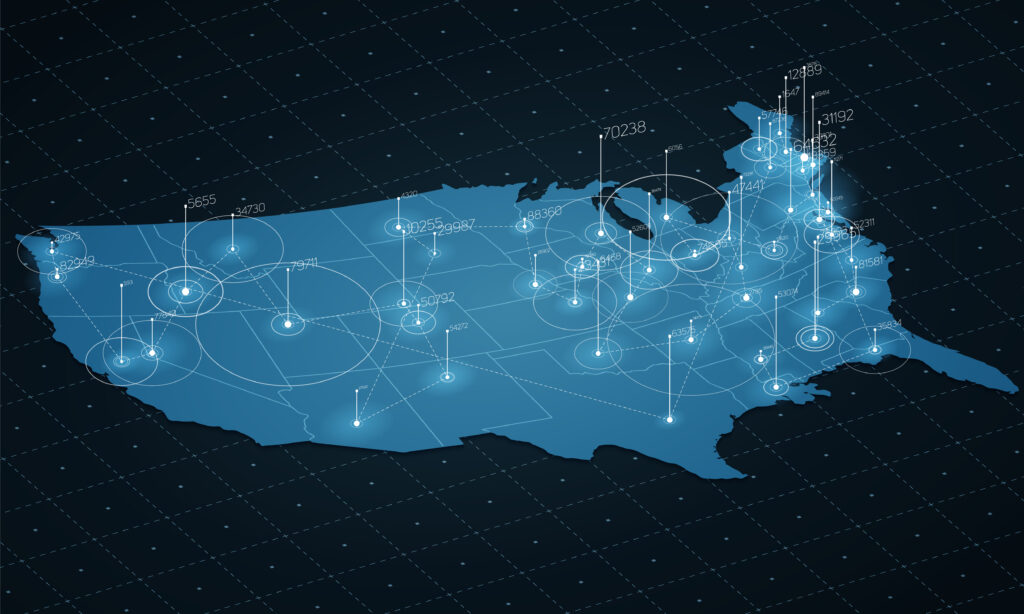Better Decisions, Faster: How AI Will Change Industrial Real Estate
By: Matthew Rand
Managing Director, Research & Analytics

I never planned to be a data scientist. Most of my career has been focused on figuring out the intrinsic value of portfolios of real estate assets, aiming to buy when they’re priced below that value and sell when they’re priced above it. But the advances in computing capabilities over the past few years have unlocked a whole new level of analysis. The questions we might ask when analyzing properties are the same as they’ve always been. But our capacity to answer them — quickly and at scale — will never be the same.
From my perspective as managing director of the Research & Analytics group at Link Logistics, I think this data-driven revolution will transform industrial real estate. As a firm, we are embracing this once-in-a-generation opportunity.
Early in my career, I had to choose between digging into the details on a single asset or doing top-down estimates across whole portfolios. Now we can do both—replicating micro-level work across a big enough population that we can see the macro-level meaning. We can find patterns and logic hidden in piles of messy data.
AI at Link Logistics
Scale matters. With a portfolio spanning more than half a billion square feet, being just a little bit smarter can be invaluable. Link Logistics has consistently been among the biggest buyers and sellers of industrial real estate since it was founded by Blackstone in 2019. To justify all that activity, you should know things others don’t.
That is why we built a proprietary AI model that uses more than 2 billion data points to anticipate leasing trends and identify properties situated in strategic locations. Developed with Blackstone’s support and underpinned by our wealth of data, our tool helps the firm see more clearly as we make investment and leasing decisions.
The way we do it is by designing machine learning processes that look through our data for attributes we can measure related to location, building features, financial features and so on. We can better analyze, for example, how the shape of a building relates to its clear height and proximity to freight flows.
This allows us to:
- Anticipate changes in location value
- Look for redevelopment opportunities within our portfolio or in properties we might acquire
- Simulate different macroeconomic scenarios, while allowing for individual submarkets and properties to have complex interactions
- Understand how our customers’ supply chain networks might evolve in the future to achieve their business objectives more efficiently
By seeing around corners, we can better create a portfolio that suits customers’ needs today and into the future.
Human ability, augmented by AI
We’ve built our firm and our processes around human judgment, aided by insights from our data. Machine learning alone doesn’t do enough, because all models have error. The power of AI, for us, is to give our investment and leasing teams the benefit of everything that AI can see, and to give humans the freedom to make adjustments where their experience tells them conclusions should be different. AI doesn’t make decisions for us; rather, it’s a member of the team who can see, understand and make suggestions based on an industry’s worth of activity.
We introduced AI into our budgeting processes about two years ago, for example, and immediately halved our error rate. There’s a lot more opportunity ahead of us over the next decade.
AI could strengthen our support for the green energy transition and amplify our sustainability efforts by empowering us to make better sense of utilities usage at our properties. It could help us better understand, for example, the effects of seasonality on energy usage by customers across industries and regions. Such knowledge will be invaluable in bolstering our practical, value-oriented sustainability program.
Beyond predictive analytics, there are also a variety of uses to improve operating efficiency. AI could soon enable us to do things like summarize thousands of legal contracts in seconds, query company results in natural language and ensure that diligence proceeds smoothly. These uses would help our team focus less of their time on mechanical work.
Reducing friction
What these advancements all have in common is that they reduce the friction of running a real estate business. Thanks to AI, the humans at Link Logistics will have real-time access to clear signals derived from breathtaking volumes of data. With AI and machine learning, we can make better decisions, faster. The decisions themselves are — and I think will always be — human.
Imagine an industrial real estate world where everyone has faster access to more information. The conclusions we each come to regarding capital allocation, leasing and operations across our portfolios will still differentiate us. At Link Logistics, we think our stakeholders benefit from us getting there sooner. We are building the processes and the muscle memory as an organization to create and use AI-driven insights. I’m excited about where that will take us.